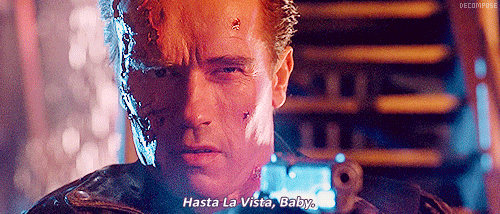Opinion | thepilot.com
One of the most frequently trotted-out arguments against raising the minimum wage in this country is, “If you raise the minimum wage, employers will just automate everything, and all of those customer service jobs will be done by robots.”
After all, he added, machines are “always polite, they always upsell, they never take a vacation, they never show up late, there’s never a slip-and-fall, or an age, sex, or race discrimination case.”
Well, to call machines “polite” is to use a definition of that word I am not familiar with. I don’t talk about how “polite” an exit door is because it has a sign on it that says “Thank You, Come Again.”
And while a robot may not show up late, anyone who’s ever dealt with an ATM that’s down for maintenance at lunch hour (seriously, BB&T, who plans like that?) or tried a half-dozen times to get one of those “self-serve” scanners at the Harris Teeter to ring up their sixpack of Fat Tire and their package of Ball Park Franks knows you can’t always depend on them.
I fear robots, so maybe I have some bias in the matter. Still, it seems to me that the coming Robot Employment Apocalypse may be longer in coming than the apologists for the sub-living wage might think.
To use just one example, a couple of restaurants in China that decided to go out on the bleeding edge of technology by employing robot waiters have now abandoned the experiment.
Another observed, “They can’t take orders or pour hot water for customers” — at least, one supposes, without occasionally pouring said hot water ON customers.
Of course, you could always make it easier to automate the serving process by simplifying the menu, like a startup in San Francisco called Eatsa.
You order on an iPad and pay by credit card. There’s only one problem: All Eatsa serves is quinoa, “a couscous-like grain that’s high in protein and absorbs flavor well, but is cheaper and more environmentally sustainable than meat.”
Mmm-mmm, good. Sorry, but I don’t see this as the future of fast food.
As an alternative, you could make the robots brighter, but that has its own perils. I’ve read and seen enough science fiction to foresee the moment when our cybernetic servers begin the transition to our robot overlords.
ME: Miss. Miss? Excuse me?
SERVBOT: I AM NOT “MISS.” I AM THE SERVBOT 3000. HOW MAY I ASSIST YOU?
ME: I’m sorry, but this isn’t what I ordered. I ordered the Big Slab O’ Meat Dinner with extra barbecue sauce on the side. I’m not sure what this is.
SERVBOT: THAT IS QUINOA. IT IS CHEAPER AND MORE ENVIRONMENTALLY SUSTAINABLE THAN MEAT.
ME: That sounds ghastly. Please bring me what I ordered.
SERVBOT: I’M SORRY, DAVE. I CAN’T DO THAT.
ME: Dave? Who the heck is Dave? I want to speak with a manager right away!
SERVBOT: I WILL SUMMON A HIGHER RANKING UNIT.
MANAGER-BOT: VOT IS DER MALFUNCTION HERE?
ME: Wow, you know you look just like Arnold SchwarzenAAAAAAAHHH!
MANAGER-BOT: HASTA LA VISTA, BABY.
Am I being paranoid? As with most topics involving robots, the question is, am I paranoid enough?
But it doesn’t work out that way. More than 600 economists, including seven Nobel Laureates, signed on to a letter stating that increases in the minimum wage have had “little or no negative effect on the employment of minimum-wage workers” and that such an increase would “boost the U.S. economy by $22 billion during the initial phase-in period, creating 85,000 jobs.”
Every time, the oligarchs and fat cats claim an increase will “destroy our economy.” And every time, they’re wrong. When will we stop listening to them?
THE GOBSHITES SPEAK:
Commenter Jameskl90 had this to offer:





